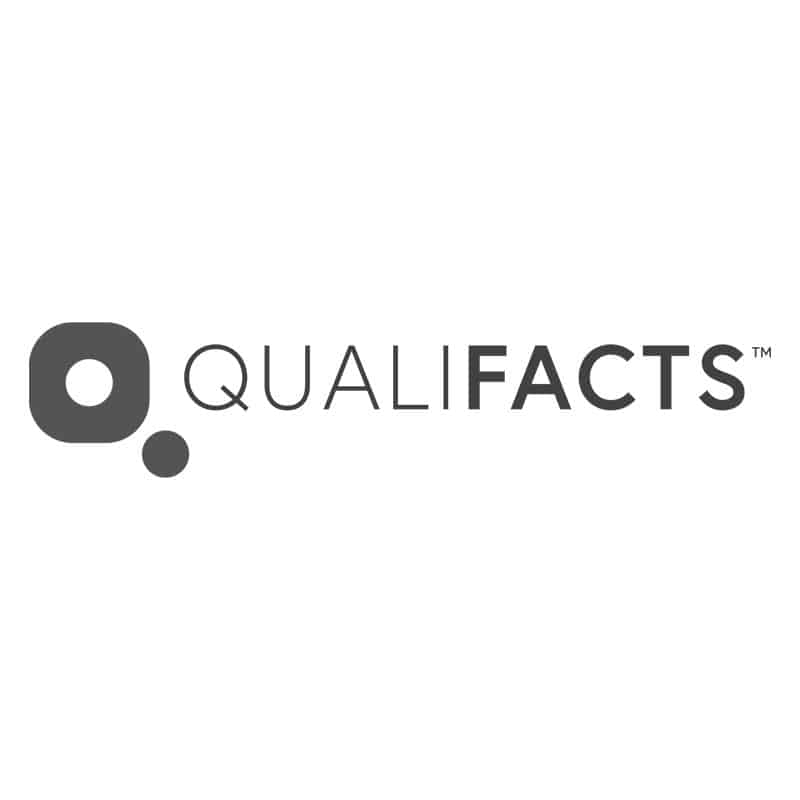Hi everybody, it’s great to be here again. Thank you for joining us. My name is Jack McCullough. I am the President and Founder of the CFO Leadership Council, and I am grateful that you’re making time to join us today. And I’d say, to say the least, I have one of the most interesting guests I’ve ever had on LinkedIn Live, Joyce Mater. Joyce, welcome, and thank you so much for having me, Jack.
Oh, it’s great, and I was prepping your biography, and I was planning to read it with your list of accomplishments, but it would take me until, you know, half an hour if I listed every accomplishment you have. It would take the whole 30 minutes and give me an inferiority complex in the process. But, uh, well, I am a mental health professional, so I could help you through that. But thank you; that’s weird.
Well, you know, this might go a little bit longer, but I cut a short version out. So, uh, Joyce has been a licensed clinical professional counselor since 1998 and is an expert in self-esteem, very timely mindfulness, and career development. She’s the founder of Urban Balance, a counseling practice that she started with over 100 clinicians working from 10 locations in three states. She successfully sold Urban Balance to Refresh Mental Health in 2017 and serves as the Chief Brand Ambassador for this national leader in outpatient mental health care. She’s maintained a limited practice and is a faculty at Northwestern University. She’s routinely consulted as a consulting expert in the media, featured in such outlets as Wall Street Journal, U.S News and World Report, CNN, Real Simple Magazine, and interestingly enough, MTV. This all begs the question of why she’s joining me today, but I’m not going to lift it. Look a gift horse in the mouth.
She actually recently authored a book, “The Financial Mindset Fix: A Mental Fitness Program for an Abundant Life.” You published that in July, I believe. And yeah, so Joyce, did I get the biography mostly right?
Yes, you did. Oh my goodness, thank you so much.
Well, it’s great to have you here, and a lot of my followers are CFOs, and I’d say two years ago, mental health may not have been such a big deal for CFOs. But just with everything we’ve been through, you know, in the corporate world and in our personal lives, it’s actually become from, you know, priority number nine on the list to, you know, certainly top five. Every CFO I talk to thinks mental health issues are critical. So, thank you for everything you’re doing for the world. It’s just awesome.
Thank you for that. I do hope that’s the silver lining of the pandemic, is that more people are recognizing the importance of mental health awareness. And I’m doing a ton of training for corporations across the country and globally. And I’m glad because I want to remove shame and stigma and promote access to care because we all have mental health like we have physical health, and help is available and effective. These times are challenging.
It’s interesting because I’ve mentioned my dad once or twice to Joyce, and he was a legitimately tough guy, you know, a big strong guy in the Navy, he was a bricklayer, and he once told me I was pretty young, and he just said, you know, he thought maybe I was going through some stuff, and he said, “Look, admitting that you have mental health issues isn’t a sign of weakness; it’s a sign of strength.” Beautiful. And when a tough guy born during the Great Depression can say something like that, you know, I think we all should kind of recognize that because, believe me, my dad’s tougher than anyone in my audience. I would put money on that. So, but anyway, a couple of sort of administrative things for the audience before we go. There’s no time limit on the program. We’re going to go for a little while. If you do have questions for Joyce, you can ask them in the comments box, and we will see them in real time. This isn’t being recorded; this is actually happening live and in real time, and we will do our best to answer those. In fact, if somebody could just simply type “hello” in the comments box, I’m just one of those paranoid people who often wonders if Joyce and I are only talking to each other, so I want to make sure that this is actually making its way to LinkedIn Live.
So, anyway, Joyce, I want to ask you a few personal questions about your own background before we get into some of the professional topics. And the obvious one, I know you’re in Florida right now, but where’d you grow up?
I grew up in Toledo, Ohio, so I’m a Buckeye. I went to The Ohio State University.
Okay, The Ohio State University. I always love when they say that on Monday Night Football. And you still went to The Ohio State University, and you went to school, and because I think of you as a Chicagoan, you’ve lived there a lot, right?
Yes, I came to Chicago to attend Northwestern University for graduate school, and I’ve stayed ever since.
Okay, terrific. Yeah, it’s a great city, and I know you have at least somewhat of a Massachusetts connection.
Yes, my mother is from Boston, and my father is an alum of Harvard Business School. And then I have an older sister, Paula, that lives in Boston as well.
Oh, okay. He went to Harvard. Nobody’s perfect. I’m an MIT Sloan person, for those who don’t know. So anyway, tell us a little about what was your first job?
My first job was as a hostess at Frisch’s Big Boy in Toledo, Ohio. Big Boy, is that very important?
Oh my goodness, absolutely. Absolutely.
Okay, well, I would think you’d be good at that. Were you an extrovert at a young age?
Yes, very much so, and I enjoyed it. It was fun, and I waitress throughout college and graduate school. You learn a lot about customer service, solving problems, and many of those skills transferred to being a therapist and a speaker in other jobs I’ve had ever since.
Yeah, I can imagine. You get a job where you work with the public; you get to understand human nature a little bit.
Yes.
So what was your favorite job? And you can’t say the one that you’re doing right now.
Oh, I can’t?
Well, if you really feel strongly about it.
Well, I have loved being a psychotherapist. I find it emotionally, intellectually, and spiritually rewarding. But I would say one of my favorite jobs was being a cocktail waitress at a bar and grill at Ohio State. I realized I didn’t like football, and I was attending OSU, which was a problem. So I got a job working every game, and I made a couple of hundred bucks, had a great time, and met my friends afterward. So that was a lot of fun.
Yeah, that’s, uh, yeah, you don’t like football at Ohio State; that’s going to cause you some issues.
Yeah, it’s funny; your favorite job as a cocktail waitress, because mine, I worked as a bouncer at a bar in Boston. Actually, I worked at a few of them as my family owned them. That was my favorite job. On a good night, you could actually make more money doing that than I could when I got my first real job out of college. So, like, just for one night, you know, I worked at Pete Merrick and Mitchell, but I made more money in a day working in a bar than I did at Pete Mark. So, yeah, amazing.
I’m sure the same is true of my first therapy job. The starting salary in Chicago in the mid-’90s was $18,000 a year for a therapist. Not great.
And you actually mentioned that in your book, which begs the question, why did you pick the chosen field? And, you know, I say that as an accountant and an MBA.
Well, exactly. So, when I was at Ohio State as a freshman, I was undecided in my major, and I am so grateful that they were so progressive in the early ’90s and encouraged all undecided majors to take a class where we picked three areas of study that we were most interested in. They told us to study what we loved learning about and not really think about what we were going to do. I was fascinated with social sciences, so I explored psychology, sociology, anthropology, and I realized I care about the deeper things in life — our emotions, our relationships, our connections between one another, why we behave in the ways that we do. And I enjoy being of service to others and very mission-oriented. So, I chose psychology. I quickly learned I needed a master’s degree if I wasn’t going to be a waitress anymore. And it was disheartening when I started my first day at Northwestern. I had just signed $50,000 of student loans, and the professor said, “You certainly didn’t come in this field for the money.” And I was like, “Uh-oh, how am I going to pay my loans back and support myself in Chicago?” So, I became really interested in the psychology of money and how to do what I love but also prosper financially.
And I told him about my book and the challenges I was having, and he said, ‘I have your answer.’ My heart raced, and I was like, ‘Oh my gosh, this brilliant monk is going to solve my life problems.’ And he wrote something on a piece of paper and handed it to me, and it said, ‘WTF.’ I was like, ‘Yeah?’ And I was like, ‘Are you being curious right now?’ And he said, ‘Yes, I am. Weaken the fiction, weaken the fiction that you’re telling yourself, all the excuses, all the BS, all these rationalizations why your book isn’t happening, and get out of your own way.’ And that was brilliant advice that helped me do just that. As I changed my narrative, which is a part of psychology narrative therapy says we’re not just the protagonist of our own life story, we can also be the author. So I chose a different path, and my book came to fruition.”
“I’m sorry; I’m just chuckling at the idea of a monk. Did he know the other meaning of WTF, and I don’t mean Wednesday, Thursday, Friday?”
“Yes, he did. He was a funny man and brilliant and really helped me get unstuck. Boy, it’s great when you can meet people who can surprise you that way. But now I’m going to be giggling for the rest of the interview, unfortunately, Joyce. But we’ll get through it.”
“So anyway, I want to ask you a little bit, and I know you have a blog on Psychology Today, and you use the term ‘mental wealth.’ What does that mean?”
“Well, I really believe that mental health is having both mental health and well-being, as well as financial health and prosperity. Not one without the other. I think our culture at large, especially in corporate America, we value financial success and achievement. But if we don’t have mental well-being and supported relationships, that exacerbates depression, anxiety, mental health issues, relationship conflict, a lack of work-life balance. So I believe in holistic success that includes both, which is why I call it mental wealth. And I support people in having an abundant life that includes mental wellness, supported relationships, work-life balance, and financial prosperity and abundance.”
“Right, yeah, that’s what struck me about the book. Not that you’re greedy or anything like that, but hey, if we can get rich during the process, it’s a beautiful thing, right? You don’t view accumulating wealth as necessarily a bad thing, right?”
“So right. I think a lot of us have grown up with cultural or religious teachings from our families of origin that might have told us that, in some ways, accumulating wealth is bad, that it’s spiritually wrong. But I believe that when we have more, we can help more. As my business grew, I was able to provide more jobs, pay people better, provide internships, provide pro bono and sliding fee services, give to charities, and become more involved with philanthropy. So this is not a get-rich-quick scheme. It is not about greed or excess or materialism. It’s about us working on ourselves to become the highest and greatest version of ourselves, really maximize our intellect, our creativity, our unique gifts, and align them with the need and a need in the world. Our world needs each and every one of us to shine our talents brightly and to the greatest extent possible. And when we do that, we lift everyone up and we serve as a lighthouse for others. They think, you know, if Joyce can do this or Jack can do this, then I can do this. And so I love empowering others to grow and become blossom into their most successful self.”
“Okay, that’s wonderful. That’s very inspirational right there. And in the book, you write a lot about the psychology of money. And, you know, it’s perhaps an obvious question, but actually, the answer is not obvious. How can we leverage it to improve our financial lives?”
“Over 25 years of practice, I’ve learned so much from my clients. And I’ve counseled people from those who are really suffering financially to the extremely wealthy. And I noticed that everyone has issues with money, and our thoughts, our beliefs about money largely shape our financial reality. So cognitive-behavioral therapy is one of the most empirically supported forms of therapy, and it says our thoughts precede our emotions and behaviors. So if we have negative or catastrophic or fear-based thinking about money through self-fulfilling prophecy, that’s how things are going to go. So we also have part of the psychology of money is how we manage our emotions around money. And many of us have baggage; we have financial anxiety. Again, even the very wealthy. I’ve had clients who put all their money in investments and didn’t have liquidity and couldn’t sleep at night, or they’re worried about their business. I certainly went through that as a CEO. And we might have shame or anger about our financial situation. So there’s ways to manage that. And then our relationship and behaviors with money, we all know we need to earn more than we spend, but it’s our psychology that causes self-sabotage and self-limitation. So my book teaches proven tools from cognitive-behavioral therapy and mindfulness, narrative therapy, other approaches to help people change the way they think, feel, and behave with money so that they can increase their financial wellness.”
“Okay, that’s fantastic. I got to think somebody just sent a question to us, did this just start over, which I’m not sure, but I don’t know if LinkedIn someone sent this back in time, but I think, Joyce, you and I should keep going live. In the worst case, we get a recorded version of it. But we believe that this is happening live. So if you have any questions for Joyce, presumably you don’t have any for me, please type them in the comments box, and we will do our best to get to them. And for those who joined after the preliminary introduction, my guest is Joyce Mater. She holds many jobs: she’s been an entrepreneur, CEO, author, public speaker, and clinical psychologist. And someone just said we’re good to go.”
“And she published a book earlier this year, ‘The Financial Mindset
“I love your book; it’s fantastic and very psychologically oriented. I love that you talk about psychopathic CEOs and personality disorders and how challenging that can be when we work with individuals who have those characteristics and features. So, you give lots of practical tools, which I love.”
“Well, that’s very kind of you because when you offered to read it, I was a little bit nervous, to be honest. But that’s a great endorsement coming from you. So anyway, let’s move on. We got a little distracted there. But you talk a little about the psychology of money and improving our lives. What are some of the ways that one could read your book and get help with that if I may ask?”
“Yeah, so my book is based on 12 mindsets that are empirically proven to improve both mental health and financial health. And they include practical step-by-step instructions with proven tools and techniques from psychology. So I have innovative and fun exercises for readers to complete. This is an active program; it’s a mental fitness program. You have to do the exercises to reap the rewards. So lots of journaling exercises, I have mock therapy sessions where I ask them thought-provoking questions, I have innovative self-assessment tools to assess your financial health, your consciousness, your level of support because I do think support is an important aspect of success and well-being. And I share inspirational stories from my amazing clients and some humbling ones of many mistakes that I’ve made along the way.”
“That I can say, I found the exercises really good too. You know, I’m probably one of those readers; I sometimes jump right to the exercise. But they were really interesting; you can really learn quite a bit about yourself.”
“But you referenced a scarcity mindset and an abundant mindset and why and how is this important for happiness and success?”
“Well, you mentioned your father growing up in the Great Depression, and my father was born in 1929 as well and definitely had a scarcity mindset because there was fear and competition over resources and fear that there’s not enough to go around. And so that creates again competition, negativity, the idea that if somebody has more, that means you have less. And we’ve seen that again and again with the housing market crash in OA, now with the pandemic. The toilet paper incident is an example of a scarcity mindset. And an abundance mindset is one where we trust that there’s enough resources for all of us, and we work collaboratively. And it’s more about seeing opportunities, applying creative problem solving, and being open to change instead of seeing barriers. So with my clients, I can see the people who are going to be successful because those who say, ‘Oh, I could never do that, that won’t work for me,’ they’re closing doors, where I think people who are successful in entrepreneurship and leadership look past barriers and find solutions. So it can be life-changing to have an abundance mindset, and it can help not only financial health but also love and relationships. You know, if you think there’s no good partners out there, you’re probably not going to find one or improve health, etc. So it’s a mindset shift.”
“Yeah, I forget who said it, but you can believe you can do something or you cannot believe you do something, and either way, you’re right.”
“I love that quote; I just saw that recently. That’s brilliant. It might have been Amelia Earhart, but I’m not 100% sure who it was. So, it could have been anyone else, but yeah, it’s definitely a great quote.”
“And sorry when you mentioned the toilet paper thing, I gave this look of annoyance, I realized, and I’m like she probably thinks I’ve annoyed at her, but I was like in line it was probably you know a year after the start of the pandemic and the guy in line was buying toilet paper and he said this is the first time I’ve had to buy toilet paper in over a year. And he said it almost like he was bragging like that he, I had neighbors that didn’t have toilet paper, right? You know, and I don’t know what they did, but you know, obviously we all survived this guy’s bragging that he hoarded some for a year. What’s kind of what would make somebody not only do that but you know just be totally indifferent to the fact that other people suffered because of it, right? I mean, he probably wasn’t a bad guy. I mean, you know, sure, pretty low crime rate in the town I live in.”
I’m sure he’s an honorable citizen by most accounts, but yet he did something that’s kind of really annoying. Yes, it’s not conscientious of other people, and it’s not looking at ourselves. We’re interconnected and interdependent as human beings, and if we hoard, there’s an element of selfishness to that, and it causes other people to suffer. So part of my book too is about doing compassionate business and applying compassion and ethics to the work that we do so that we can thrive, grow, and prosper together. I think it’s really important to be conscious and compassionate in that way. If people hoard, that creates the shortage. So again, this is not about greed and excess, but this is about really doing our best work so that we can create more, solve problems in the world, lift one another up, and be change agents for positive change. So yeah, the scarcity mindset is not only harmful to you and your own mental and financial health and well-being, but it’s harmful to your neighbor.
Yeah, exactly, in that case. And like I said, I don’t know who it was. I mean, you just happened to live in the same town as me, but probably not the worst guy in the world. It’s like, why’d you do that? But yeah, so anyway, I wanted to ask you. I’m sorry, fear can be a huge motivator.
Fear is very related to money as well. So that’s part of what I try to help people with, using tools from psychology to manage fear and anxiety about money and resources. Because it is, I mean, you know, so much of what we do, right? We’re taught, you know, that’s everything. But so, which leads a good point, what’s the connection between net worth and self-worth?
This was interesting. Early on in my practice, I started to notice that as my clients made progress in therapy, they started to earn more money. Client after client was coming in saying they got a raise, got a promotion, started a new business or side hustle. And I was like, why the heck is this happening? Because we’re not even talking about their career or finances. And I realized it’s because even if they were coming in for depression, anxiety, addiction, relationship issues, as we worked in therapy, their self-esteem improved. And as their self-worth improved, they started putting themselves out in the world with more confidence, more assertiveness, expanding their comfort zone, and negotiating. And that had a financial return. And I’m not the only one who noticed that. Suzy Orman noticed in her financial advising that self-worth leads to net worth. And she said, “But net worth does not lead to self-worth.” So we all know a lot of people with a lot of money who are miserable and unhappy. But inner worth, it’s innate. And we are all deserving of goodness and wellness. And it is not our bank account or a job title that brings us self-worth. Our self-worth is internal. But when we really own that and embrace that, which is one of my favorite things to help people do as a therapist, we can empower ourselves to really grow in our businesses. So that’s an important thing. And ego, you have said many humble statements today. And really, our egos all have egos as part of the human condition. And our egos can cause us financial harm, not only in being arrogant or selfish or greedy or aggressive, as we might typically think of ego. But the other side of ego is insecurity and feelings of inadequacy. And in that state, we don’t advocate for ourselves. We don’t ask for what we deserve. We allow our boundaries and needs to be compromised. So healthy self-worth is where we value ourselves and the other party, and we communicate with respect, assertiveness, and healthy financial boundaries.
Okay, well that’s fantastic. And you mentioned that the folks who get therapy, they improve in aspects of their life that they weren’t even thinking of. And I can’t help but think, and I’m not the sportsman that I used to be, but I still fought a little bit, but a lot of high-level athletes actually get that type of help for them. It lets them focus and makes them better basketball players, better Olympic athletes, whatever it might be, and a lot of executives as well.
Absolutely, I think we can all use a coach or a counselor. And I think sometimes, unfortunately, people think about therapy or counseling as related to mental illness, but it can be to promote your mental health, develop your emotional intelligence, your relationship skills, learn new tools in your toolbox. That is what helped me work toward being a conscious leader in my company and manage relationships and kind of keep myself in check so that I could because your team is your greatest asset. So you’ve got to really detach from your own ego and operate in a way that’s conscious and compassionate in order to be successful.
Yeah, it’s interesting because in my earlier book, I interviewed 44 CFOs, and they were really good CFOs, Fortune 50 type of companies, and a handful from Silicon Valley. And I’m going to say with maybe one or two exceptions, they all had a coach. And none of their coaches helped them on financial stuff.
We all have strengths and we all have areas of deficit that we need to continue to grow and develop, and when we work on that, we do better. One of my best referral sources is a client that I worked with that’s incredibly successful and happy, and she talks openly about being in therapy. And people are like, “How are you so successful?” And she says, “I have a good therapist.” And I think that’s a great model. She’s referred probably 50 or 60 clients to my practice. Wow, that says quite a bit, doesn’t it? So cool. But you know, mental health, it’s such a big issue in Corporate America and everywhere right now.
But I talk to a lot of people; it’s the nature of my job. Overwork and burnout, not only with the CFOs who tend to be a little bit more resilient than a lot of people, but they’re really worried about what’s going on with their teams and with the Great Resignation, which in a lot of cases, it’s actually maybe a good thing, right? It could be you had some eye-opening experience and whatnot, but it’s very real. Not everybody’s leaving at the right time. But how do we recover and cultivate emotional, social, and financial resilience? And not only as individuals but again because many of the people watching are probably CFOs, you know, how can they encourage that within the people that they report to? And you know, the new phrase they say, “I’m responsible for my team,” I rarely heard that two years ago, and now I hear it every week.
Yes, and overwork and burnout is very much a real thing, and there’s a huge increase in anxiety, depression, relationship issues, substance abuse, you know, relationship conflict that all affects performance at work. And so I think it’s so important for companies to have a mental wellness initiative. I provide a lot of trainings on mental health awareness, teaching supervisors and leaders how to identify the signs and symptoms and refer staff in a way that’s compassionate, that’s going to get them to appropriate care, creating a stigma-free, compassionate culture for mental health, and having systems in place that promote work-life balance.
I love mindfulness in the workplace programming. Huge companies like Google, Nike, and Nokia have mindfulness in the workplace programs that the research shows it helps everything from physical health to mental health to productivity, reduces health care costs, etc. So I think it’s important to give employees tools to practice good self-care, access support using mindfulness strategies, and really creating a culture where people feel psychologically safe to come forward and say, “Hey, I’m struggling and I need some help and assistance.”
Yeah, no, that’s fantastic. And again, you know, my dad’s point, if someone can say that, that’s a very strong, confident person. And I think not so long ago, a lot of us would have thought the exact opposite, that it would take a weak person to say that. But it’s definitely not the case. And it’s interesting because I’m a Boomer myself, and you know, we sort of, you know, we certainly didn’t invent the profession. We were sort of the first generation that a lot of us were doing it and whatnot, but you know, now it’s completely mainstream. You know, Generation Z completely recognizes the value and the critical importance of mental health at a pretty young age, much younger than we did on average, I think. So I think it’s absolutely fantastic.
So I love that. That makes me so happy. And I’m a Gen Xer who, you know, I was really worried when I started my grad program that my professors were going to see that I deal with an anxiety disorder and that they’d be like, “You can’t be a therapist; you have issues.” But guess what, we all have issues. And it’s like being diabetic or something; you have to have tools to manage it. And through those tools and my own therapy, my own coaching, I practice what I preach. You know, I’ve been able to overcome a lot and grow. We were talking about public speaking and exposure therapy before we started today, and just having those experiences helps us grow. So yeah.
I love that shame and stigma are being removed; people are talking about this. One company I spoke for, the CEO introduced me and shared with everyone about his history with major depressive disorder, which was really powerful. It’s a huge company, and during that presentation, a couple of attendees actually shared that they were having some suicidal thoughts and feelings and were connected through HR for immediate help through the Employee Assistance Program. So this can be life-changing and life-saving for folks. So it’s critical, right? And by the way, you know, if you’re one of those people who just doesn’t care, it’s actually really good business. Even if you don’t particularly care about your employees, it’s actually good for your business to have these sorts of programs and that kind of culture in place that they can embrace these sorts of things. It’s a critical thing, and if you don’t, you’re going to lose your best employees, and that’s maybe the biggest challenge CFOs and businesses generally are facing, is employee retention, right? Treat them well, you’re going to lose them because they have a lot of options right now.
Yeah, and addiction is a $500 billion cost for companies in America, and major depression and other serious mental health issues are a $200 billion cost. So, $500 billion for addiction, $200 billion for mental health issues. And by investing in these corporate wellness programs, you reduce healthcare costs, you reduce absenteeism, you reduce errors, you improve productivity, you improve morale, you improve retention. So there’s a financial return as well, right? Analysis prevention is a pound of cure, as they say, right? So, yes.
Well, Joyce, you gave some nice comments to me about my book, and you know, I just love it when people read something I wrote or whatever and they learned something from it. So, as we close, if someone has some questions, I know Joyce has some time to stick on, but what’s some of the feedback you’ve gotten from the book that kind of impacted you? It’s like, “Wow, that’s fantastic. I really impacted this individual’s life.” You’re getting anything like that?
Yes, I have, and it means so much to me. In fact, this morning, I woke up to two emails. One is from a professional colleague who’s a business owner and a psychologist, and she said she felt like the book was written for her, and she felt so motivated, inspired, was working through the exercises. I had a student that I’ve mentored that said she’s listened to the audiobook and is now reading the book and doing the exercises, and that it’s life-changing. A lot of people who are younger are saying they felt like we should have learned this stuff in school and that it’s like adulting 101. So that makes me happy too. And I’ve had older adults who were facing retirement say that they used the tools in the program to plan their next chapter. So that makes me super happy. It just… that’s why I do what I do. It fills my cup when I speak to people and they share that I said something that really resonated and changed their life. I mean, that’s… that fills my heart and soul and is why I do the work that I do.
Well, that’s fantastic. Your 20-year-old self would be really happy with that answer, I have to think so.
Well, that’s great. Joyce, why don’t you, if you would, can you share your website?
Yes, it’s joycemarter.com, J-O-Y-C-E-M-A-R-T-E-R dot com. And again, my book is on Amazon Audible, it’s in bookstores, Barnes and Noble, all the major book retailers, and I’d love to be a support and resource to anyone who’s listening. And she’s also a fantastic speaker for those who are looking for that sort of thing. There are some great video clips on her website, so I highly recommend it. Joyce, I know you have a lot going on, so I just want to say thank you for making the time to be with us today, and I hope you and your family have a wonderful holiday season. I know you’ve got the family coming together down in Florida.
Thank you so much, Jack. I’m so honored. I really appreciate it, and I’m a big fan of you and your work as well.
Well, thanks. I’ll give you the final word.
The final word? Oh my goodness, happy holidays to everyone. I wish you an abundant life and practice good self-care during these challenging times.





























